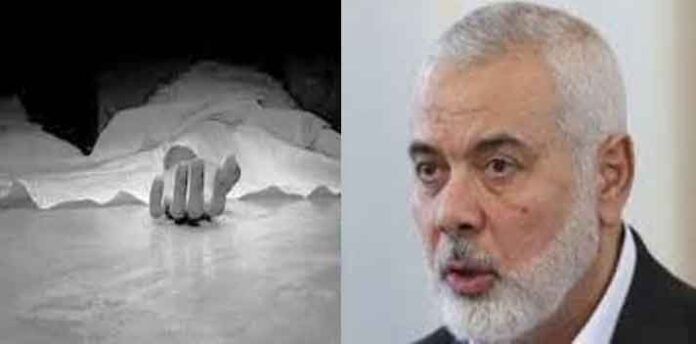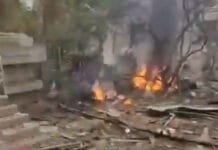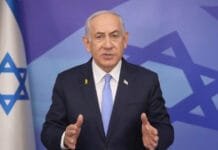The assassination of Hamas chief Ismail Haniyeh has sparked unprecedented unity among Islamic countries. Explore the implications of this event, the responses from key Islamic nations, and the potential for escalating tensions in the Middle East.
Introduction
INVC NEWS
Tehran : The death of Hamas’ political chief, Ismail Haniyeh, has sent shockwaves throughout the Middle East, triggering a cascade of reactions from Islamic countries and beyond. Haniyeh was killed in a missile attack in Tehran, allegedly orchestrated by Israel. His demise has not only fueled a call for revenge but has also led to an unexpected unification of Islamic nations, setting the stage for heightened tensions and a possible escalation towards a broader conflict. This article delves into the aftermath of Haniyeh’s death, the geopolitical ramifications, and the potential impact on global stability.
The Attack on Ismail Haniyeh
The Incident
On a seemingly ordinary night, the tranquility of Tehran was shattered by a missile strike at 2 am local time (4 am Indian time). The target: Ismail Haniyeh, Hamas’ political chief. The attack, confirmed by Iran’s Islamic Revolutionary Guard Corps (IRGC), resulted in the deaths of Haniyeh and one of his bodyguards. The IRGC quickly pointed fingers at Israel, accusing it of orchestrating the strike.
Immediate Reactions
- Iran’s Response: Iran’s Supreme Leader, Ayatollah Khamenei, was quick to condemn the attack. “Israel has increased trouble for itself by attacking,” he declared, emphasizing that Haniyeh’s death on Iranian soil necessitated a response.
- Symbolic Gesture: A red flag was hoisted on the dome of the Jamkaran Mosque in Qom, Iran, symbolizing a call for revenge. This age-old tradition marks the severity of the situation and Iran’s commitment to retaliate.
Islamic Countries Rally Together
Iran’s Diplomatic Maneuvers
In the wake of Haniyeh’s assassination, Iran has spearheaded efforts to rally Islamic countries. With the red flag waving as a powerful symbol, Tehran has reached out to allies, urging a unified front against what it perceives as Israeli aggression.
Support from Key Nations
- Turkey: President Erdogan condemned the killing, asserting that it would not deter Palestinians from their struggle. “They will never succeed in their aim,” he vowed.
- Pakistan: Pakistan’s Foreign Ministry labeled the attack a terrorist act by Israel. “Israel’s bullying is increasing in the region,” the ministry stated, highlighting the potential destabilization of peace efforts.
- Iraq: Iraq, while opposing the Hamas attack, expressed solidarity with Palestine. “We are with the people of Palestine in this hour of grief,” Iraq’s Foreign Ministry announced.
The Funeral and Final Farewell
A program to bid farewell to Haniyeh was scheduled in Tehran, attended by a multitude of dignitaries and supporters. His body was then sent to Qatar for burial in Doha, a testament to the respect and reverence he commanded across the Islamic world.
Escalating Tensions and Global Implications
The Risk of Retaliation
The red flag hoisted in Qom is not merely a symbol; it is a declaration of intent. Iran’s call for revenge has resonated across the region, with many fearing that a retaliatory attack against Israel is imminent. The potential for a broader conflict looms large, with the possibility of drawing in various global powers.
Global Alignments and Potential Conflicts
- United States and Allies: The US and several other countries have announced their support for Israel. This alignment has the potential to polarize the international community further.
- Oil Markets: The news of Haniyeh’s death has already impacted global oil markets. Brent crude and West Texas Intermediate benchmarks saw an immediate rise, reflecting concerns over stability in the Middle East and potential disruptions in oil production.
The Specter of World War III
The combination of uniting Islamic nations, a vengeful Iran, and unwavering support for Israel from Western countries paints a grim picture. Analysts warn that the conditions are ripe for a conflict that could escalate into a global confrontation, with the Gulf region as the epicenter.
The death of Ismail Haniyeh has undoubtedly reshaped the geopolitical landscape of the Middle East. As Islamic countries unite in response to his assassination, the world watches with bated breath, fearing the potential for a significant escalation. The implications of this event stretch far beyond regional boundaries, impacting global stability and economic markets. Whether this unity among Islamic nations will lead to a more profound conflict or a new era of negotiations remains to be seen. One thing is certain: the ripple effects of Haniyeh’s death will be felt for a long time to come.
















